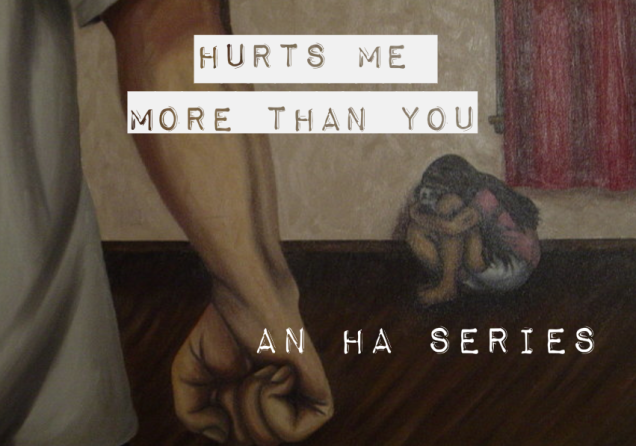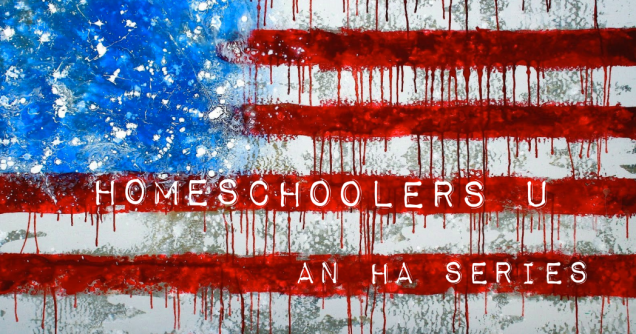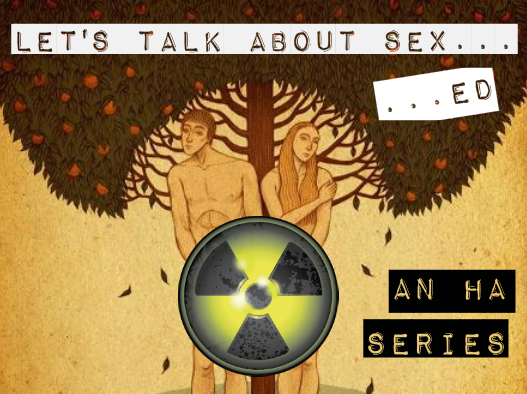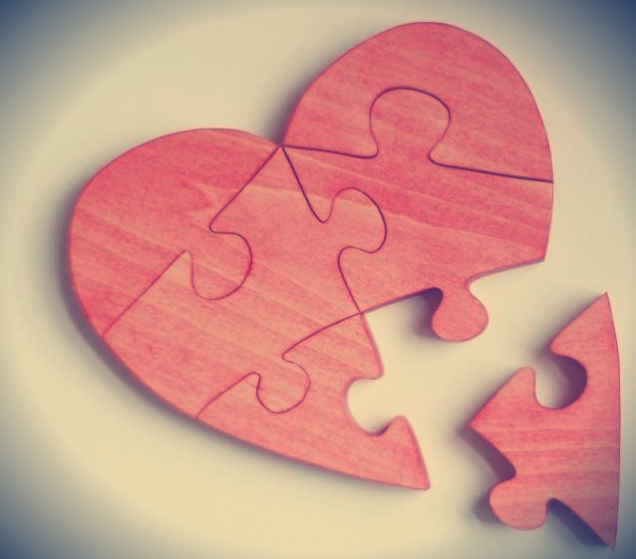How easy is it to leave a cult? For me personally, the answer is “not very.”
I pay close attention to the stories of those who have left a religious cult. I admit I am a little envious of the females who made their escape from their family’s cult by marrying a man who whisked them away from it all. I wish I had that ticket available back then. It wasn’t available to me because I was terrified of men. I was especially afraid of Christian men because of the religious Christian monster my father was. And I was also scared of the so called secular, worldly men because linking up with them meant my life would be cursed with demons attacking me, and my family would cut me off. Also, there was that unspoken threat circulating in the underground Christin dating advice columns and pastor’s sermons where the non Christian man is guaranteed to cheat on you and leave you. If he doesn’t first rob a bank, then become a mass murderer. Because, gasp, that’s what people do who don’t fear God.
So I knew from a young age that my escape was not going to be through a man. There would be no prince on a stallion. My sisters didn’t escape with the help of a man or marriage, either. They were about as gun shy of men as I was.
So how did we get out? Well, we couldn’t just leave. It seems so easy, right? Just walk out of the door.
But if we moved out of the house, God would allow Satan to attack us, destroying our physical health, mental health, finances, future career, and future relationships and marriage.
That would happen if we left the house without our father’s permission. The only way he would give us permission to leave was if we married a good Christian man he approved of. A man who our father would transfer us to, so we could be under that man’s authority. We wouldn’t be safe unless we were under a Christian man’s authority. Also, if we left unwed to an approved man, our father said he wouldn’t be able to pray a hedge of protection around us. He said his prayer alone wouldn’t be enough to keep Satan from destroying us while we were out in the world.
There was no safe way to leave. Going into a courtship with a man approved by my father was far too frightening a concept for us sisters to want to entertain. We saw how our Christian father abused our mother, and we weren’t going to be tricked into an exit from our father’s home just to relive it again with a patriarchal man that he chose. No, that was far too great a risk.
And we couldn’t just walk out the door and move into our own apartments. With all those threats and judgments from God? No, doing so would be equivalent to admitting you had a death wish. I would never have thought to leave on my own. Unless I really hated myself and wanted my life as I knew it to end.
It was easier for my brothers to leave.
They were Patriarchs in the making, and were far better equipped than women to make it out alone in the world without risking God’s wrath. My older brother got out after he graduated from college, accepted a good job, and had the financial where with all to go. Incidentally, he timed his departure so that he got married right when he left my parents’ house, but he could have left with or without getting married if he wanted to. My brothers were privileged simply because of their gender. They didn’t have nearly as much oppression or nearly as many rules as my sisters did.
So, this is how my older sisters escaped. My father hadn’t made any matches for them, and they were waiting and getting old. My father did approve of a courtship for my oldest sister L with a Christian man who worked with my father. My sister L did not find him in any way attractive and declined him. That I know of, she didn’t get courtship offers after that. So when L was about 25, my second oldest sister Thalia (aged 24) staged an intervention and secretly got an apartment out of town, where she all but dragged my mild mannered, easy going oldest sister along to. They left quickly and secretly, before my father found out. L didn’t want to go initially, but with Thalia pushing and planning, they made a hasty departure. There was a big blow up when they left, much threatening and cursing of their futures.
All manner of ill will was wished on them, Bible verses were hurled, their characters questioned.
They were called harlots who were practicing the sin of rebellion, which was likened to witchcraft. At this point, my sisters were so naïve and innocent about matters of life, that calling them harlots was just silly. Their harlotry consisted of wearing gel in their hair instead of leaving it natural. That, and going to a university where… non Christian men sullied my sisters simply by walking past them on campus. As if. My younger sister and I were given threatening sermonettes on the dangers of following their wicked footsteps.
When I was about 24, my 21 year old sister Christy staged an intervention. She secretly put a security down on an apartment out of town and rented a U-Haul. The same day, she broke the plans to me and told me I had a few hours to decide if I wanted out or not. She told me I had to make up my mind quickly. Back then I didn’t even know we were living in a cult. I had no outside worldly experience to compare my life to. My 18 year old brother was going along with us. At the last minute I said, “OK.” But I was dragging my feet. I was scared and not ready to go.
I had just graduated college, and had my bachelors degree in elementary education and my teaching certificate. I was too scared to go on interviews, so I lived on a substitute teacher’s salary. This wasn’t enough to pay the rent, even splitting it three ways. My younger sister had just graduated as well and had her bachelors degree and was hired as a nurse days before she even got her diploma. She was strong in her decision to go. I wasn’t as confident.
As an aside, it is quite a shocker that we had gone to college at all. But my sisters and I had discussed how we didn’t want to end up like our mother, uneducated except for a high school diploma, trapped and abused by our father. Since we didn’t trust any man to get us out or have our backs, our ticket was an education, career and independent single gal living.
If it wasn’t for my older sister Thalia paving the way and helping each of us work out the FAFSA and various scholarships and loans, we wouldn’t have had the know how or balls to go against my father and try to extend our education.
All of my siblings and I took part and sometime full time jobs and went to college around our work schedules. I certainly would never had gone to college without Thalia’s example and encouragement. My parents would not help financially based on moral grounds, and kept trying to discourage us from going. According to my father, college was evil and worldly, and all of us had better be prepared to reap the consequences of going through demonic attack as punishment from God for disobeying and going. My siblings laughed this off, but I was terrified. I woke up every day and fell asleep each night worrying when my judgment would hit.
So I entered the real world with reluctance and fear. I had a secret boyfriend at the time, and was able to see him much more often, which was nice.
But I’ll be honest with you. If my younger sister hadn’t staged that intervention, I wouldn’t have left. If I hadn’t gone with my younger sister and brother, I would have been the only one left at home other than my parents and trust me, I was incredibly uncomfortable with that. So I went with my siblings, even though everything inside me was screaming that I wasn’t ready. Home was bad, yes, but it was all I knew. And even more importantly, I knew what would happen if I left as a single female, unmarried to a man who could protect me from the evils of the world. I knew I would be slaughtered. According to cult rules, God would punish me by sending demons to destroy my physical health, career, finances, relationships, happiness and mental health.
Again, my siblings laughed all of this off. I wish I could have had their thick skin and sensibilities. For some reason, I was terrified of the consequences and they weren’t. However, I think that had to do with the fact that I took spiritual matters far more seriously than my siblings did. And the main reason for that, although I didn’t recognize it at the time, was because I sensed how much my father hated and shunned me, and wanted to do everything possible to get his approval. Since religion was his life, I figured that my following his spiritual rules to the T would be an excellent way to gain his approval. Sadly, though, the more I tried, the more he pushed me away.
But I didn’t let myself see that. I just kept trying all the more to be spiritual. I got baptized, taught Sunday School, tithed, fasted for weeks on carrots, cornflakes and water, wore hideously modest prairie dresses and culottes, went to Bible College, went on a mission trip overseas, wanted to become a missionary, didn’t look sideways at men, read my Bible and prayed regularly. Meanwhile, my sisters left the house in modest attire and changed into tight jeans and tanks in their car, dated wild men, read romance novels, said “Shut up” and “Oh my God,” looked at magazines in the grocery store checkout, pierced their ears and wore clip-ons over top to hide the holes from my father, bought bathing suits and went to the beach (covert trips, of course). Most of my siblings were dancing on the edge of hell, and were just laughing all the way.
My siblings would occasionally talk about how horrible it was growing up.
They would whisper that we had grown up in a cult, and that our father was a sociopath.
They worried he would work himself up into some massive Biblical dither one day, shoot our mother, shoot himself, and then that would be the end of them. We used to check in our mom to make sure she was OK after most of us left. Our father kept loaded rifles on his bedroom wall, and often fell into unpredictable tirades of anger where he got violent. So my siblings worried. I was in a religious stupor myself back then, and told my siblings he was innocent, that he would never hurt our mom, and they were just being dramatic. Again, I didn’t have the foggiest idea of what we grew up in, as I had no experience in a world other than the family home and cult. Yes, I did go to college full time and worked, but I was too afraid of people to talk to them, so it’s like I was just a ghost passing through. I studied, took tests, drove, came, and left without communicating with other people, so it was like I actually wasn’t even doing these things or really in the world. I was technically, slightly “in the world” but without human interaction out there, it pretty much doesn’t qualify as being out.
Even after the intervention, when we moved out, I was in the world but very hesitant to break out of the mold and drop my normal customs and habits. It took quite a long time.
Fast forward a decade. I was living in extreme stress every day worrying about God’s judgment for every little thing I did. And trust me, after ten years, I had started being worldly. It’s like I had one foot back in the cult, since I believed 100% everything I was taught back then. And I had one foot in the world, living the life of a heathen while wracking up punishment and guilt left and right.
That’s the danger of leaving before you are ready. That was the danger in my leaving my family and the cult before I was ready. That was the downside to accepting the intervention my sister staged when I was scared to go. That was the danger of leaving the cult physically, without first leaving mentally and emotionally.
That was the danger of living in the word without shedding the cult mentality. I gave myself permission to try to live a “normal” life like normal people did, but I couldn’t get rid of all the nagging cult fears and threats of punishment for trying to be normal.
Maybe I would have been safer never leaving the cult in the first place. Maybe I would have been safer at home with my parents in the cult, safe from God’s judgment because I was carefully obeying all rules?
Maybe that would have been safer than living a double standard, free on the outside but still in bondage to the cult fears inside?
I can’t even begin to explore what would have happened if I had stayed in my parents’ house instead of leaving with my siblings during the intervention. I think it would have been an incredibly dark experience. I do know that once I started living on my own, I began to experience happiness. I did forget the horrors of the cult. I think I can honestly say that I was happy on my own. Especially when I was geographically far away from my family. I certainly didn’t have any flashbacks, anxiety or any physical manifestations of PTSD for at least a decade. I was pretty much oblivious and happy go lucky. I was always on the move though, never sat still or rested. Never stayed in any one location too long, or with anyone too long. I was antsy. I didn’t ever want to get trapped by any person or situation. I was always running, always busy. I didn’t stop to reflect or look inside. I just thrived on looking outside of myself, and shut my emotions and feelings up tightly. I was my five senses exploring the world, and nothing else.
I do recognize the danger of living in the duality I was immersed in for the decade of time I was out free in the world, living it up, but terrified on the inside.
Like I mentioned, I always felt fear and threats lurking over my shoulder, poised and ready to get me for the huge amount of sins I was piling up every day. I was just waiting for all hell to break loose. I was just waiting for my punishment to begin. Biting my nails hoping that maybe I could squeak by for another day, another month, maybe even another year before disaster hit me.
And then it hit. I was 33 and a half. The PTSD knocked me blindside, and everything fell apart. My health fell apart, even though I struggled for a year to keep myself together. I had to eventually give up my teaching career. Well, I put in for a year’s leave of absence, but my health wouldn’t allow me to go back after that year was up. I had to give up my apartment, my boyfriend left me, acquaintances disappeared, and I didn’t really have friends… the only thing I had left was my family. I had literally forgotten how strange and cruel they were. Time has a way of clouding those things over. So I crawled home, happy to have a family to go stay with.
I was naive. Too trusting. Too gullible. I give too much credit ahead of time. I actually thought I would go home to open arms. They were closed. But I didn’t find that out right away. It was a very slow process of me finding this out.
When I went home, I was so ashamed of my life of sin, that I…. wait for it, wait for it, oh, darn it. Yes, you guessed it. I weep to share this sad revelation.
I went back into the cult.
There. I said it. I double dipped.
Oh, horrors!
That’s what happen when you leave before you are ready. The chances of falling back into the fold are just that much higher.
And I felt so guilty. I fell into it headlong.
To the point that I was back in the Bible, back in the land of religious fear, eating up all the devotionals that said illness was punishment from God, that illness was a gift from God, that I was supposed to praise God for the beautiful gift of character edification that came in the form of illness. I ate it all up.
I even let waver my fiercely held promise that I would protect myself by never getting married to a man. I let myself believe for the first time that perhaps a Christian man would be safe after all. Because what had I ever really known about being safe, right? Here I thought I would the safest out on my own in the world far away from my family, far away from religion, and without a man. I really thought that was my safest bet. But here that plan didn’t pan out. Being alone out in the world unmarried, living a non-Christian life only ended up with me getting PTSD, ME/CFS and severe adrenal burnout.
So I had to re-evaluate my perception of what “safe” really looked like. I had been broken. I had to try a new route. God was a fierce punisher, and the single life alone in the world without Him and a man who served Him was a dangerous life after all. I had learned the hard way that it would be safest after all to do the Christian thing, the right thing, and get married to a good Christian man.
If I did this, perhaps God would ease up his punishment on me and perhaps He would even let me regain my health!
So I over-rode my fear of Christian men and married one. I introduced him to my family (oh horrors!) and I introduced him to Christianity and the cult. I thought I was doing the “right” thing. I was getting back on track. The backslidden AJ rallies and returns to her Christian roots, praise God Almighty, and all God’s people say, Amen.
Right. I married K. He actually wasn’t a Christian when I initially met him. It was I who led him to the Lord. Out of compulsion and duty, not out of a desire. I didn’t trust a Cristian any farther than I could throw one, but at the same time I feared what would happen to myself and him if we didn’t punch our tickets and do our bare minimum as Christians. I felt safer around K knowing that he was brand new to the faith and hadn’t been brainwashed by any sub cults or extremist thinking. He was a good man, and kind, when I met him. I imagined it could stay that way. I figured that as long as I was there to guide the ship and help shape the direction of his newly forming beliefs, he would remain the kind and jolly fellow he always was.
I was wrong.
As soon as K put on the coat of Christianity, he became a monster.
A living and breathing certified, Bible thumping, Christian monster. And that’s when my eyes opened and I didn’t want to go on living or breathing any more. The life vest of Christianity that I had reached for in my hour of need was now no longer a life vest, it was a pile of rocks that drug me to the bottom of the lake and wouldn’t let me up for air. I endured it for a couple years, until one day I woke up and realized that I want nothing more to do with being a Christian.
It’s been about two years now that I’ve left Christianity. I’m still digging myself out of the pit and separating from my family and a few situations and people still involved in the cult. I’m happier now, and K is happier.
On looking back, a part of me thinks that if I had stayed in the cult at my parents house instead of leaving during the intervention, I would have not only obeyed the cult rules, but I would have felt safer, I wouldn’t have feared severe punishment from God every waking minute of my life for years on end, and I wouldn’t have fallen apart with severe PTSD. I could possibly have avoided my health falling apart. Just think!
From this perspective, I wish I would have stayed at the homestead after graduating college and lived a safe life where I could just breath. It is too difficult balancing one world with another, with one foot in one world and one foot in the next. But at the same time, if I had stayed on the homestead in my parents under cult rules, I may have just shriveled up and died inside. Or I may have reached some kind of internal conflict that forced me to examine my beliefs and wake up. After which I would have solidly renounced the cult and made a clean break by leaving the belief system 100% and physically removing myself far from the cult and my family.
A solid, clean break is the ticket. The best way to leave involves breaking away emotionally and intellectually, as well as physically and geographically.
I still do admire those folks who were able to know firmly what they wanted the first time they left, the folks who didn’t have to come back for round two to relive the nightmare. I admire some of my siblings who weren’t so entrapped and who left more easily than I did. But every one’s journey is different.
I double dipped, but that’s OK. The first time only my body left. The second time, my body, heart and mind broke away. I had to experience the horror twice to know what I wanted and didn’t want. I know now. And I’m finally free.






